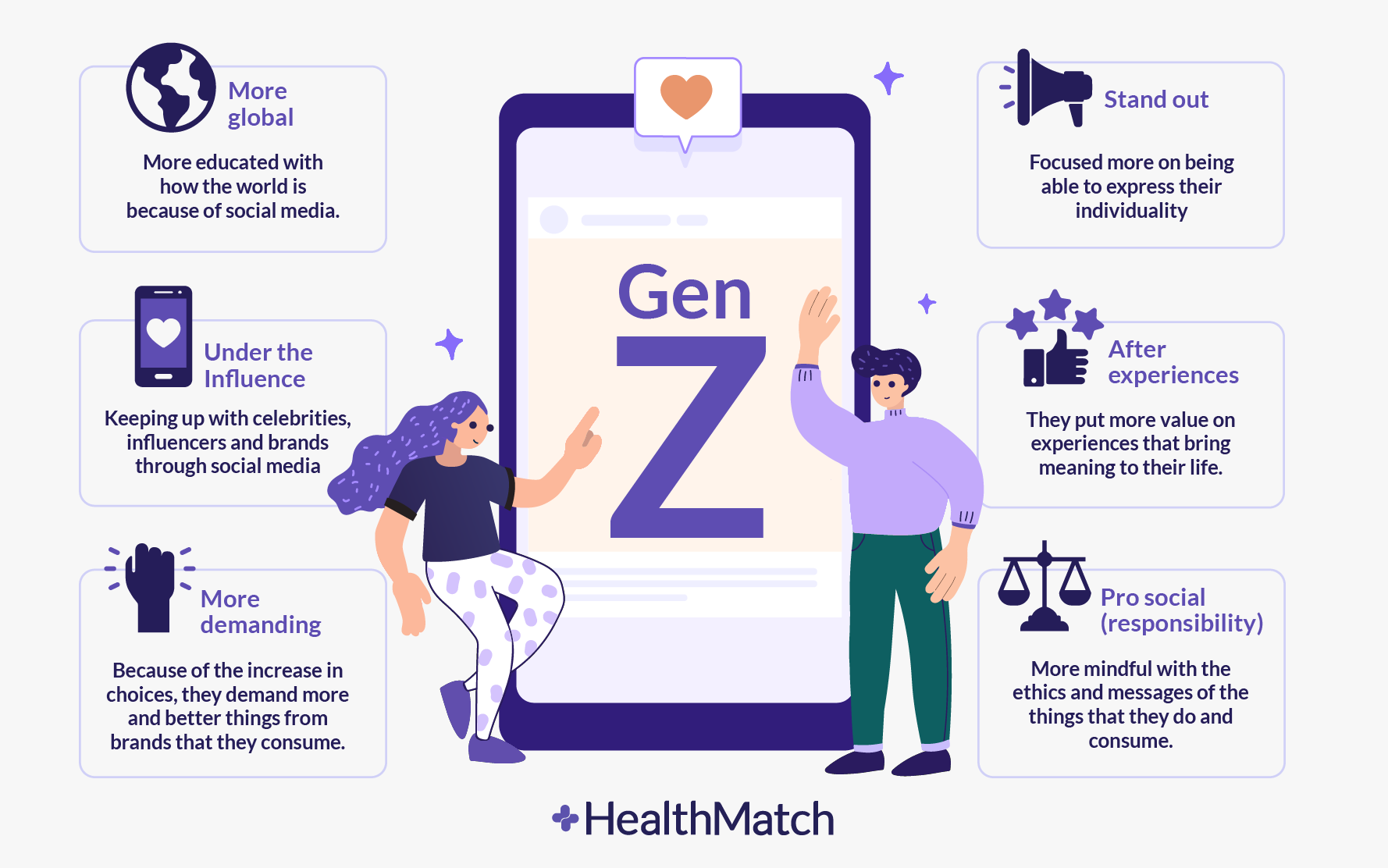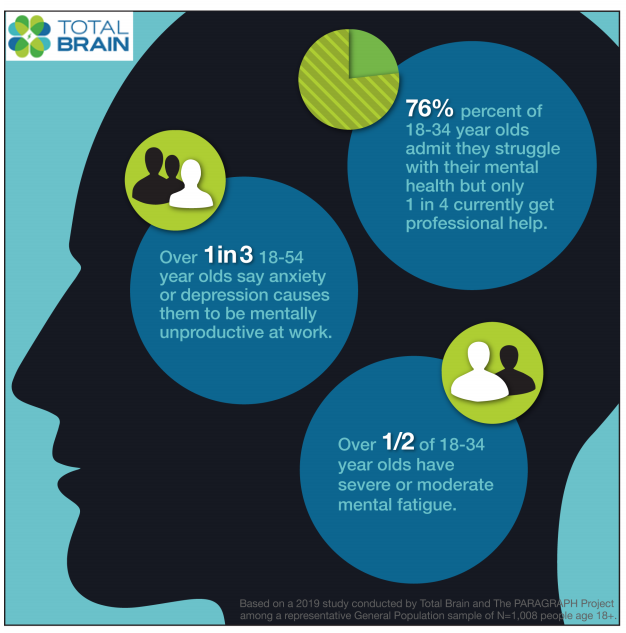What Is Emotional Fatigue?
Emotional fatigue is a state of mental exhaustion caused by prolonged exposure to emotionally demanding situations. In clinical settings, it’s often discussed in the context of healthcare workers or caregivers, but a broader, more culturally pervasive form is now affecting young people on a mass scale.
According to the American Psychological Association (APA), emotional exhaustion is a core dimension of burnout, marked by “feelings of being emotionally overextended and depleted of emotional resources” (Maslach & Jackson, 1981).
With social media delivering a never-ending stream of distressing content—often personalized by algorithms—Gen Z and Millennials face a uniquely persistent form of psychological wear and tear.
Read More- Gen Z Lingo
Why Gen Z and Millennials Are Especially Vulnerable
Some of the reasons could be:
- Digital Native Status: Gen Z is the first generation to grow up entirely in the digital age. According to Pew Research (2023), 95% of teens report owning a smartphone, and nearly half say they are online “almost constantly.” That exposure makes them more susceptible to the relentless emotional cues embedded in news cycles, influencer drama, and global crises.
- Hyper-Empathy and Activism: Younger generations are more socially conscious than ever. From climate change to racial justice, they feel a moral responsibility to stay informed and take action. But this constant moral engagement, while noble, can also become psychologically draining.
- Blurred Boundaries Between Self and World: With social media, the boundaries between one’s personal life and the world’s problems become porous. The pain of strangers can feel as immediate and pressing as one’s own.
- The Pressure to Perform Empathy: There’s also a cultural expectation to show empathy, not just feel it. The pressure to post about causes, share fundraisers, and comment on tragedies can lead to performative behavior that further disconnects people from their own emotions.

Symptoms and Consequences
Signs of emotional fatigue include:
- Emotional numbness or detachment
- Anxiety and depression
- Sleep disturbances
- Cynicism or apathy
- Avoidance of news or social media (doomscrolling fatigue)
Mental Health Impact: The National Alliance on Mental Illness (NAMI) reports that over 60% of college-aged individuals say social issues negatively affect their mental health. Chronic emotional fatigue can contribute to clinical anxiety, depression, and even burnout.
Behavioral Changes: Emotional fatigue often leads to withdrawal, procrastination, or “numbing” behaviors like binge-watching, overeating, or excessive gaming. It can also result in emotional dysregulation, making relationships and decision-making more difficult.
The Paradox of Empathy
Empathy is one of humanity’s greatest virtues, but when it’s unbounded, it can become self-destructive. Psychologist Paul Bloom argues in Against Empathy (2016) that empathy, particularly emotional empathy, can lead to irrational and overwhelming responses.
“Empathy is like a spotlight,” he writes, “focusing our attention on certain people in the here and now, but blinding us to the consequences of our actions.”

In other words, when you’re feeling everything, all the time, for everyone, your emotional bandwidth collapses.
Strategies for Managing Emotional Fatigue
- Digital Hygiene: Limit your news intake. Set boundaries for social media use. Use apps like Freedom or Screen Time to manage exposure.
- Empathy with Boundaries: Learn to practice cognitive empathy (understanding others) without absorbing their emotional pain. This can foster compassion without burnout.
- Scheduled Disengagement: It’s okay to disengage. Take “empathy breaks” where you’re not responsible for the world’s problems. This is not selfish—it’s self-preservation.
- Curated Media Consumption: Follow accounts that inspire hope, solutions, or positive news. Not every feed has to be a firehose of despair.
- Community Support: Talk to friends or mental health professionals about emotional fatigue. Shared conversations can reduce isolation.
- Mindfulness and Grounding: Practices like meditation, yoga, or journaling can help re-center your emotional baseline.
Reclaiming Emotional Agency
Emotional fatigue doesn’t mean you lack resilience. It often means you care deeply. But to sustain that care, we need systems—both personal and cultural—that support emotional regulation.

We can cultivate a culture of sustainable empathy: one that values informed engagement, encourages rest, and promotes emotional intelligence. This shift begins with recognizing that emotional labor is real labor, and like any form of labor, it requires rest and replenishment.
Feeling Without Drowning
In a world saturated with emotional stimuli, it takes strength to feel and even more strength to protect that feeling. Emotional fatigue is not a flaw in Gen Z or Millennials—it’s evidence of their empathy, their engagement, and their humanity. The goal is not to feel less but to feel smarter, more sustainably, and with boundaries.
So the next time the world feels too heavy, remember: caring is courageous, but caring wisely is revolutionary.
References
Maslach, C., & Jackson, S. E. (1981). The measurement of experienced burnout. Journal of Occupational Behavior, 2(2), 99-113.
Pew Research Center. (2023). Teens, Social Media and Technology.
Bloom, P. (2016). Against Empathy: The Case for Rational Compassion. Ecco.
National Alliance on Mental Illness (NAMI). (2022). Mental Health and Youth.
American Psychological Association. (2021). Stress in America: Coping with Change.
Subscribe to PsychUniverse
Get the latest updates and insights.
Join 3,044 other subscribers!
Niwlikar, B. A. (2025, July 25). Rise of Emotional Fatigue in Genz and 6 Important Strategies to Deal With It. PsychUniverse. https://psychuniverse.com/emotional-fatigue-in-genz/



